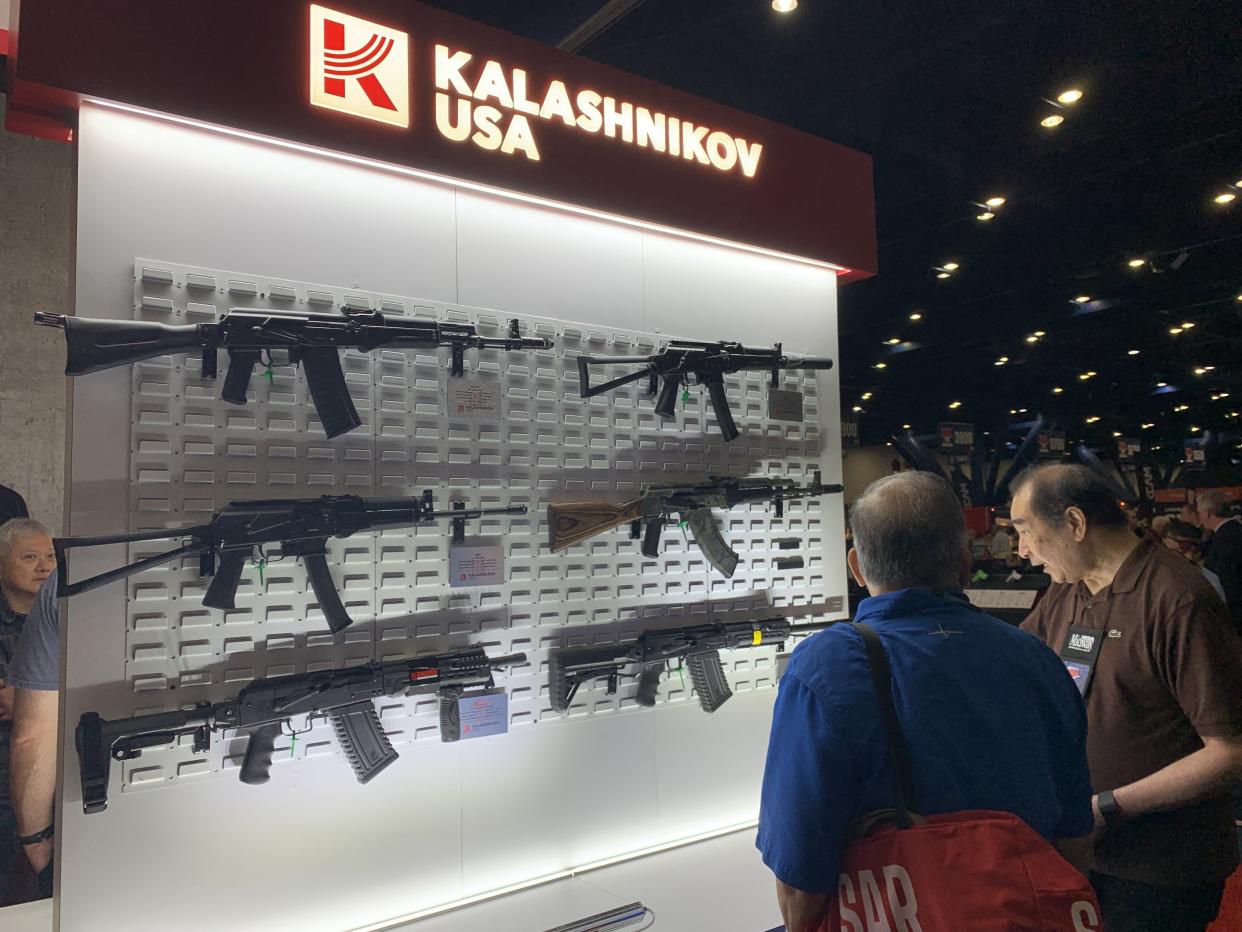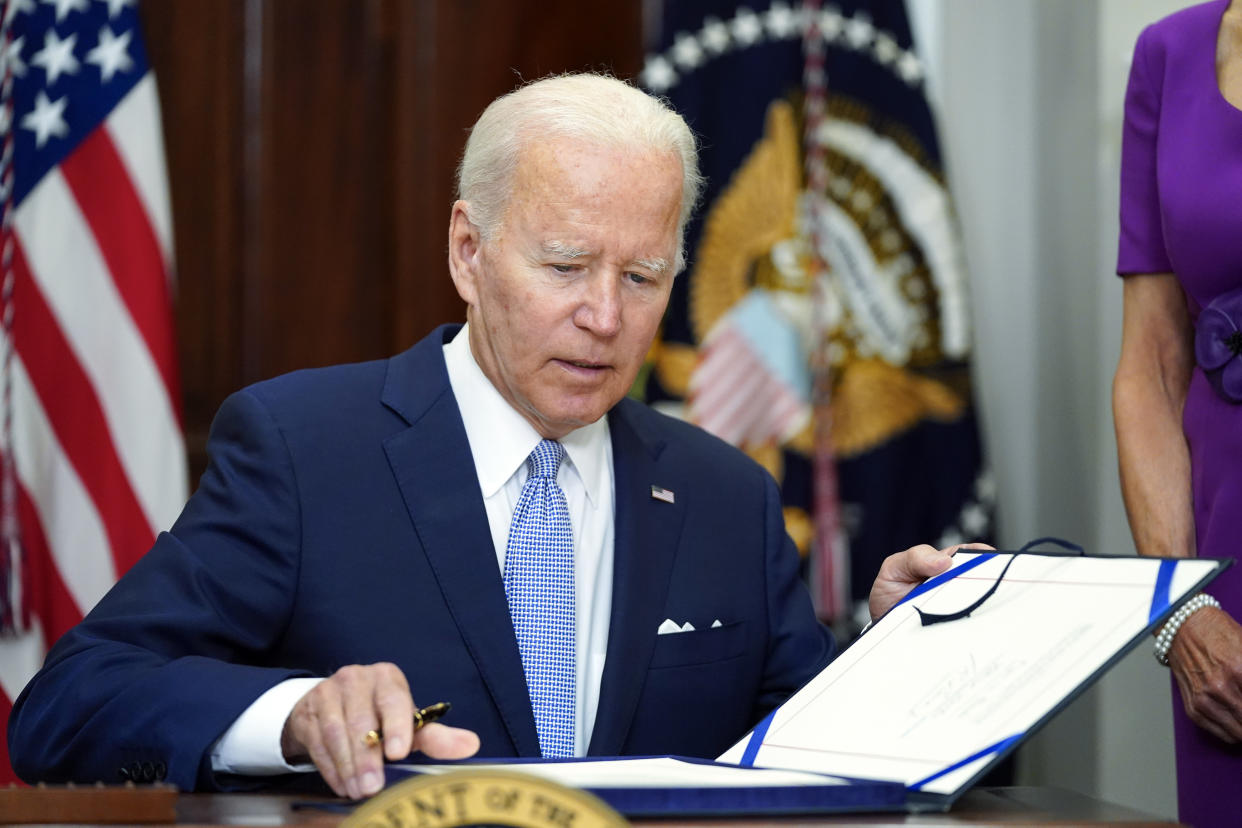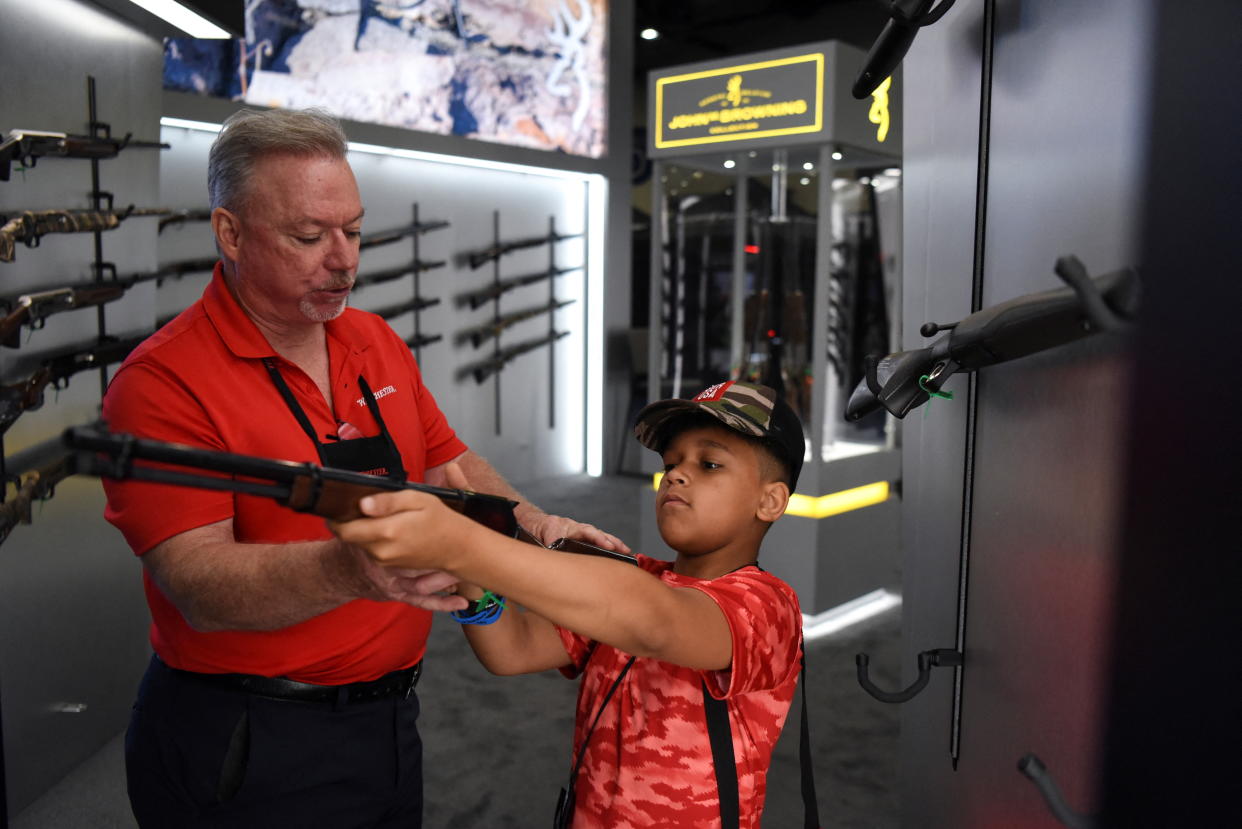As lawmakers enact new gun reforms in the wake of recent mass shootings, one factor shaping the political debate is how reliant states are on gun culture.
WalletHub ranked all 50 states by how dependent they are on the gun industry. The study compared states on the size of their firearms industry in terms of jobs and sales, the prevalence of gun culture, and gun-related political contributions.
The most dependent state on the gun industry was Idaho, followed by Wyoming and Kentucky.
While other states like California are among the largest producers overall in the gun industry, National Shooting Sports Foundation (NSSF) data shows that Idaho led on a per capita basis with nearly 7,000 jobs, $435 million in wages, and almost $1.6 billion in gun-related economic output in 2021.
“Rural states are more dependent on the gun industry, with no exception,” WalletHub Analyst Jill Gonzales told Yahoo Finance. “In terms of gun politics, northern states like Wyoming, Nebraska, and the Dakotas have the highest gun rights contributions to congressional members and no gun control contributions.”
New York, Hawaii, New Jersey, and Rhode Island were the least dependent on the gun industry, the analysis found. And although WalletHub did not factor political alignment into their analysis, Gonzales noted that “what is clear is that Blue states are least dependent overall on the gun industry.”
Republican-leaning states, meanwhile, were far more likely to have a robust gun industry. In fact, the top 20 states in the study voted Republican in the 2020 election.
Gonzales stressed that while the number of mass shooting events fits into a broader trend of higher firearm-related fatalities and injuries, the relationship between the gun industry and mass shootings isn’t straightforward.
“There is no direct correlation between the gun ownership rate or the number of NICS background checks and the prevalence of mass shootings,” Gonzales explained. “For example, New Jersey has the lowest gun ownership rate and one of the smallest numbers of NICS background checks but ranks in the top 20 states with the most mass shootings, while West Virginia has the third-highest gun ownership rate and one of the lowest number of mass shootings.”
In any case, the gun industry in the United States is an anomaly compared to other nations. Overall, the U.S. has an estimated 393.3 million firearms — an average of 120.5 guns per 100 residents.
The firearms industry has also continued to grow over the past decade. According to National Shooting Sports Foundation’s (NSSF) 2022 economic impact report, the industry created 375,000 U.S. jobs, $21 billion in wages, and over $70 billion in economic output since 2008.
Gun politics
Political polarization has made it difficult for gun reform laws to be passed, though President Biden signed a $13 billion gun safety bill into law on June 25 after a spate of mass shootings.
The bipartisan legislation, led by Senators John Cornyn (R-TX) and Chris Murphy (D-CT), funds expanded background checks and safety procedures, particularly for prospective gun buyers between the ages of 18 and 21. It also implements more sophisticated checks using mental health records.
The politics remain: Wyoming, South Dakota, Nebraska, and North Dakota tied for the top spot regarding gun politics, a metric WalletHub used to evaluate the financial relationship between state elected officials and gun rights lobbyists.
According to political watchdog OpenSecrets, gun rights groups like the National Rifle Association (NRA), Gun Owners of America, and the National Association for Gun Rights spent a total of $15.8 million on lobbying in 2021 — a record amount that outspent gun control advocates by five times.
In 2021, gun groups in Texas spent the most of any state, according to OpenSecrets data, with $963,000 in lobbying expenditures for gun rights. The nonprofit also found that Sen. Ted Cruz (R-TX), who opposed the recent gun safety bill, has received the most campaign contributions throughout his career.
And while the recent gun safety law found some consensus among politicians, the complicated issue is far from resolved in the wake of yet another mass shooting that took place in Highland Park, Illinois, over the Fourth of July weekend.
“Different states have different versions of similar laws (extreme risk protection orders — ERPO) and some have none,” University of Michigan Professor Marc Zimmerman told Yahoo Finance. “What we need is to study which existing laws are effective. We also need research on how laws are implemented and how that might affect their effectiveness.”
Gun safety research has been underfunded in recent decades, though there are some emerging trends.
For instance, “background checks may not eliminate unlawfully gained firearms, but they may eliminate impulsive behaviors that could be detected with some time to look into the individual purchasing the firearm,” said Zimmerman, who is also the co-director of the Institute for Firearm Injury Prevention (IFIP) at the University of Michigan. “So they are part of the solution, but they are not the only thing we can do to address the firearm injury epidemic.”
Another aspect that the bipartisan gun law aims to address is preventing those with mental health concerns from accessing firearms.
“We need to recognize that for younger individuals (those under 25), the brain is not fully developed so they may not make decisions like adults and may be more impulsive,” Zimmerman said. “Mix that with fewer conflict management skills and lower-level conflicts (physical fighting) can escalate into retaliation with firearms.”
Zimmerman stressed that Americans “own guns and gun ownership is not going away,” highlighting that the majority of gun owners are responsible when handling personal firearms.
“Yet these deaths and injuries are preventable, and it is especially concerning when one person can cause so much death and injury from a single incident,” he said. “We have to get away from the politicizing of this issue and just roll up our sleeves and do what we need to do to help prevent these incidents from happening.”
Luke is a producer for Yahoo Finance. You can follow him on Twitter @theLukeCM.
Click here for politics news related to business and money
Read the latest financial and business news from Yahoo Finance
Download the Yahoo Finance app for Apple or Android
Follow Yahoo Finance on Twitter, Facebook, Instagram, Flipboard, LinkedIn, and YouTube
Source: Read Full Article


